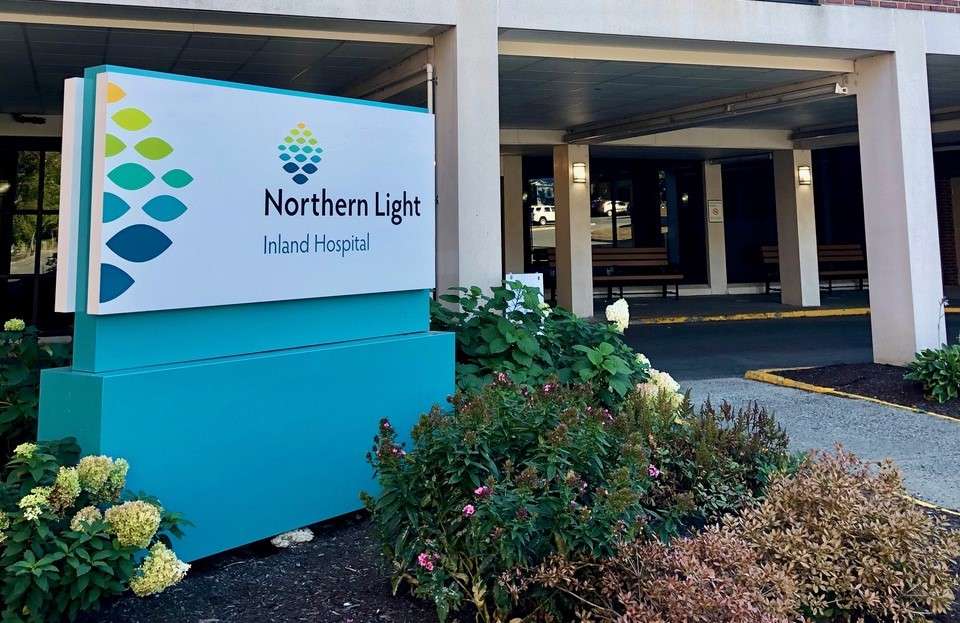China town meeting to be held via written ballot June 10
 by Mary Grow
by Mary Grow
China’s annual town business meeting will be held by written ballot on Tuesday, June 10. Polls in the portable building in the town office complex will be open from 7 a.m. to 8 p.m. Absentee ballots are available at the town office until 4:30 p.m. Thursday, June 5, for voters unable to come to the polls.
Voters will act on 2025-26 municipal and school budgets, on two separate warrants. The municipal warrant was developed by China select board members with input from the town’s budget committee, municipal employees and other interested parties.
The RSU (Regional School Unit) 18 budget for 2025-26 was developed by school officials, including the 10-member school board. China’s representatives on the board are Dawn Castner and John Soifer.
China’s June 10 meeting begins with election of a moderator at 6:55 a.m. Following articles include action on proposed expenditures for the fiscal year that begins July 1; policy decisions; and four ordinance changes.
As in past years, major expenses are to run the town. Relevant articles include:
— Art. 4, requesting $1,208,981 for municipal services (town office employees and their services, with related items like insurance and software). The comparable figure in the June 2024 warrant was $1,184,525.
— Art. 7, $467,493 for public safety, including support for local fire departments and China Rescue, animal control, Kennebec County Sheriff’s Office services and Delta Ambulance. The article includes $154,280 for Delta Ambulance, as the 2025-26 fee to member towns will increase from $25 to $35 per capita. Art. 29 authorizes the select board to negotiate for ambulance service, in case Delta finances fail.
Last year’s public safety request was $420,931. Art. 28 in last year’s warrant was the same as this year’s Art. 29.
— Art. 8, $646,799 for the transfer station, down from $666,325 last year. Much of the change is due to rearranging staff-sharing with public works.
— Art. 9, $1,818,420, for public works (including appropriating state road funds), down from last June’s appropriation of $1,848,100 for the current year.
The largest proposed decreases in public works are for paving, capital equipment and truck repairs.
Town employees’ pay is part of the administration, transfer station and public works budgets. After debate among themselves and with budget committee members, the select board majority recommends a 3.5 percent cost of living increase. Board member Blane Casey voted against the increase as too generous and therefore does not recommend voters approve articles including town salaries.
After smaller appropriations requests come policy articles asking permission for the select board to carry out its functions – deal with foreclosed property, apply for and use grants, sign contracts, buy and sell items as needed. Budget discussions showed no striking changes from last year’s warrant articles.
Art. 32 is another appropriations request, for $30,000 to finish improving Town Landing Road in South China Village, primarily to reduce erosion into China Lake.
Voters are asked to amend two chapters of the town’s Land Development Code, to complete removal of unneeded provisions (Art. 31); to repeal two complete ordinances, one obsolete and one illegal; and to re-amend the Budget Committee Ordinance.
The Land Development Code amendments will match China’s ordinance with state requirements for timber harvesting, Town Manager Rebecca Hapgood said.
The ordinance dealing with retail (as opposed to medical) marijuana facilities (Art. 30) should be repealed because it has been superseded by state law. China’s ordinance requiring a quorum for town meeting should also be repealed: it has been deemed illegal under state law.
The final article on the town warrant asks voters to amend the Budget Committee Ordinance to restore the committee membership to seven (instead of five, as in the version approved in November 2024). Committee members will continue to be appointed by the select board, not elected by districts (leaving untouched two other changes approved last fall).
The shorter RSU #18 warrant asks only two questions:
— Will China voters approve the FY 26 budget adopted by the RSU board and approved at the most recent RSU budget meeting (this question is the “annual budget referendum”)?
— Do China voters want to continue the annual budget referendum vote for another three years?
The 2025 RSU budget meeting was held the evening of May 22, in Oakland. If the second question is defeated this year, the final budget decision will be made at the annual budget meeting for at least three future years, without a follow-up referendum.
The RSU budget for 2025-26, found on the RSU website, totals $45,563,358.69. The document says this figure is an increase of $1,185,863.98, or 2.67 percent, over the current year’s budget.
China’s share is listed at $3,728,828.33 for local EPS (Educational Programs and Services) plus $2,249,442.19 in local additional funds, for a total of $5,978,270.52. The budget document says China’s EPS figure is a $241,301.99, or 6.92 percent, increase over the current year; the town’s local additional figure is an increase of $82,865.47, or 3.82 percent.
The total increase for China is $324, 167.46. At an April select board meeting, RSU Superintendent Carl Gartley explained the main reason is a legislatively-authorized increase in the Insured Value Factor, the amount allowed to private schools, like Erskine Academy, for facilities maintenance.
The annual school budget is divided among RSU #18’s five member towns – Belgrade, China, Oakland, Rome and Sidney – according to a formula based on student numbers and municipal valuations.






 On Tuesday, May 27, 2025, Northern Light Inland Hospital and clinical services ended. The facility, associated services, and most practices have been winding down services and working to transition patients to new care locations since announcing the closure earlier this year.
On Tuesday, May 27, 2025, Northern Light Inland Hospital and clinical services ended. The facility, associated services, and most practices have been winding down services and working to transition patients to new care locations since announcing the closure earlier this year.